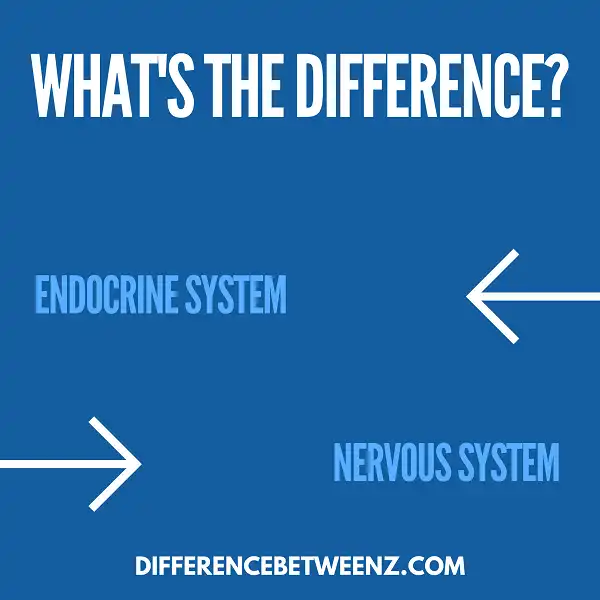We all know that the body has an endocrine system and a nervous system, but what do these systems do? What’s the difference between them? In this blog post, we’ll explore the functions of each system and discuss some of the key differences between them. Stay tuned!
What is Endocrine System?
- The Endocrine System is a complex network of hormones, glands, and organs that work together to regulate metabolism and reproduction, as well as processes such as stress, growth, and mood.
- Endocrine glands secrete hormones into the bloodstream which act like chemical messengers to target organs throughout the body. Endocrine gland hormones control many biological functions including sexual development, immune response, appetite, a threshold of pain perception, muscular development, and mental functioning.
- A disruption in this system can lead to a wide variety of ailments including obesity and diabetes – proving that when it comes to maintaining health, the Endocrine System really is one of our most important assets.
What is the Nervous System?
The Nervous System is an intricate network of cells, known as neurons, that carry messages between our brain and the rest of the body. This means it is responsible for controlling our thoughts, feelings, and behavior as well as enabling us to move and respond to our environment.
The Nervous System works by gathering sensory information from our external environment and internal body then translating it into electrical signals which are sent through neurons. Our Nervous System allows us to interpret this information and thus adapt our movements or response. In short, without the Nervous System, we wouldn’t be able to make sense of what’s happening around us!
Difference between Endocrine System and Nervous System
The Endocrine System and Nervous System are two distinct biological systems that work together to maintain homeostasis in the body.
- The Endocrine System is composed of glands located throughout the body that release hormone signals that promote long-term processes such as growth, metabolism, and reproduction.
- In comparison, the Nervous System consists of nerve cells that carry fast electrical impulses across the body in order to provide an immediate response to external stimuli.
- Endocrine signals may take a while before they are detected in target tissues, whereas nerves can instantaneously transmit messages.
Both systems can be used either separately or in tandem depending on the situation and they play a major role in maintaining bodily functions such as keeping our temperature stable, repairing systemic damage, and reacting quickly to harm.
Conclusion
The endocrine system and the nervous system are both important in keeping our bodies functioning. However, they have different functions. The endocrine system is responsible for releasing hormones that help regulate everything from growth and metabolism to reproduction and stress response. The nervous system, on the other hand, controls how we interact with our environment. It sends electrical signals throughout our body so that we can move, feel sensations, and think. By understanding the differences between these two systems, we can better understand how our bodies work and what we need to do to keep them healthy.


